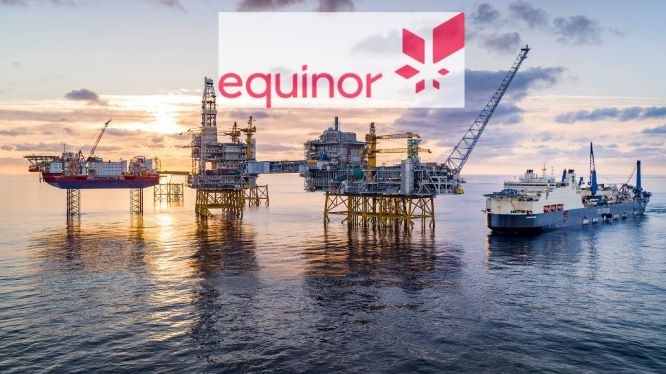

Almost there!
The Norwegian oil energy major Equinor has made new pledges to align its business with the Paris climate goals amid pressure from investors but fell short of promising binding long-term targets.
The move comes after it came under pressure from its investors and shareholders who have advocated that the oil giant should formulate a corporate strategy keeping in mind to limit the global temperature rise to “well below” 2°C from pre-industrial levels while pursuing efforts to keep it to less than 1.5°C.
[related_post]
Equinor on 24 April announced in a joint statement with institutional investors that from 2019 it will assess how its business, including new investments, aligns with this “well below” 2C scenario and laid out an ambition for including these assumptions in future stress tests.
The action was taken after several investors from a coalition called Climate Action 100+, whose members together oversee about $33 trillion, pushed Equinor to take a bigger role in tackling global warming. Valeria Piani at UBS Asset Management said: “The company has been quite advanced in doing stress testing for a 2°C climate scenario. But Paris is not about 2°C – it is about being well below 2°C.” Ms Piani at the $780bn investment group is leading the dialogue with Equinor as part of Climate Action 100+, the shareholder initiative targeting big corporate emitters and with which the joint statement was issued.
Equinor on Wednesday also asked investors to vote against three climate-related shareholder proposals at the company’s annual general meeting next month. One asked it to refrain from drilling in ecologically sensitive areas while another wanted the company to set targets for lowering the emissions of its customers. The last asked it to phase out “all exploration activities” in two years.
Oil and gas companies have recently come under pressure to take more responsibility for their contributions to global warming, not only from the emissions from their operations, but also the consumption of fuels by end users.
But Equinor chief says that the company could not take responsibility for the total emissions of their consumers. Instead, Equinor is reportedly focusing on the carbon intensity of its fuels instead, pledging to disclose data on this metric for its energy products and services from 2020.
Equinor has set climate-related targets for emissions from its operations until 2030, spanning the release of methane gases to research and development into low carbon fuels.
The company said by next year it will set out a pathway for its business beyond 2030, but said it would not establish hard targets despite growing demands on the company to do so. Equinor has committed to further strengthen the link between climate-related targets and executive pay but declined to say how far-reaching any measures will be.
In a significant move toward advancing green energy and industrial growth in the state, Himachal…
Golabl chemical conglomerate BASF has announced that its now offering the world’s first biomass-balanced polyethersulfone…
In a crucial stint to bolster the biogas sector and sustainable dairying in the country,…
TotalEnergies SE has received approval to proceed with its Middlebrook solar and battery project in…
Andhra Pradesh Chief Minister Chandrababu Naidu has inaugurated the Rs 1,000-crore green hydrogen plant of…
The BITS Pilani has developed an innovative solution for managing landfill leachate, domestic septage, and…